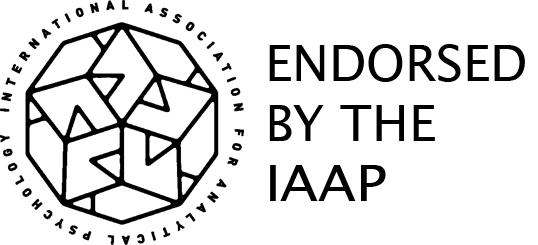Tomorrow marks the sesquicentennial of Jung’s birth, and those of us deep in the work know this isn’t just historical commemoration. We’re acknowledging the continuing presence of ideas that remain as disruptive now as they were when a Swiss pastor’s son first dared to suggest that the psyche has its own agenda.
Jung’s biography reads like preparation for heresy. Born into a family where the uncanny was ordinary, he grew up surrounded by what he would later theorize as autonomous complexes—relatives who conversed with spirits, a father wrestling with faith, a mother whose “difficulties” were never quite named. That famous vision at twelve, watching God destroy his own cathedral, wasn’t childhood blasphemy but early recognition that the divine works through transgression, not convention.
The trajectory from Burghölzli to the break with Freud follows a predictable pattern for anyone who’s watched the field’s politics unfold. Jung’s early brilliance with word association caught Freud’s attention, but even then, the younger man’s interests were too wide, his curiosity too promiscuous for orthodox psychoanalysis. The inevitability of their rupture becomes clear when you realize Jung was already tracking something Freud couldn’t see—the objective reality of symbolic process.
What Jung underwent from 1913 to 1919 amounts to the foundational experiment of depth psychology. While others theorized about the unconscious, Jung submitted to it, allowing Philemon and Salome and the rest to emerge as they would. The Red Book, finally released from the vault in 2009, proves what those familiar with active imagination always suspected: Jung wasn’t constructing metaphors but documenting encounters with autonomous psychological entities that possess their own intelligence and agenda.
The theoretical framework that emerged from this ordeal remains unmatched in its scope and sophistication. The collective unconscious with its archetypal structures, individuation as the psyche’s central organizing principle, the transcendent function mediating between conscious and unconscious—these aren’t just theoretical constructs but maps of psychological territory that serious practitioners navigate daily. Jung’s radical insight was recognizing that the psyche operates as a self-regulating system with its own inherent wisdom, positioning the analyst not as authority but as witness to the soul’s autonomous unfolding.
Jung’s intellectual fearlessness extended into territories that still make academic psychology nervous. His investigations of alchemy, the I Ching, and astrological symbolism weren’t mystical indulgences but rigorous explorations of how meaning manifests through symbolic correspondence. The late work on synchronicity and the unus mundus anticipated current discussions about consciousness and quantum entanglement, suggesting Jung intuited connections between psyche and matter that conventional science is only beginning to acknowledge.
The 150 years since Jung’s birth have seen his insights take root in ways that would have surprised even him. The early generation—von Franz, Guggenbuhl-Craig, and the rest—didn’t just transmit Jung’s ideas but pushed them into new territories. The global network of institutes that emerged represents more than institutional success; it’s evidence of analytical psychology’s capacity to adapt across cultures while maintaining its essential character.
What’s remarkable is how Jung’s framework continues to prove relevant to contemporary psychological challenges without requiring fundamental revision. Recent work on cultural complexes, racial dynamics in analysis, and the psychology of marginalized identities demonstrates the framework’s flexibility. The field has matured enough to examine its own blind spots—Jung’s cultural limitations, the early movement’s homogeneity—without losing confidence in the fundamental insights.
Contemporary clinical practice has evolved considerably, integrating attachment theory, trauma research, and neuroscientific findings while preserving Jung’s core understanding of the psyche’s autonomous intelligence. Today’s analysts work with early developmental trauma and somatic experience in ways Jung barely anticipated, yet the essential recognition of symptoms as meaningful expressions of individuation remains central.
The influence extends well beyond consulting rooms. Organizational psychology, leadership development, and cultural analysis all bear traces of Jungian insight, particularly around shadow dynamics and archetypal patterns in group behavior. Even when Jung isn’t explicitly credited, his understanding of psychological complexity and symbolic process shapes how sophisticated practitioners in various fields approach human behavior.
Jung’s relevance feels particularly acute now. In an era simultaneously marked by psychological sophistication and spiritual hunger, his vision of a psychology that honors both empirical rigor and numinous experience offers resources that neither reductive materialism nor naive spirituality can provide. His understanding of individuation as lifelong developmental process speaks directly to contemporary concerns about authenticity, meaning, and psychological wholeness in an increasingly fragmented world.
The ongoing publication of previously unknown material—the Black Books, additional Red Book material—ensures our understanding of Jung remains dynamic rather than fossilized. These texts reveal the extent to which Jung was not merely proposing theoretical models but mapping actual psychological territories that each generation must explore anew.
Most fundamentally, Jung’s core insight—that the psyche possesses objective reality and inherent wisdom—continues to challenge the reductive assumptions of a culture that mistakes consciousness for brain states and meaning for social construction. His psychology provides a sophisticated alternative that honors both scientific inquiry and the irreducible mystery of conscious experience.
At 150, Jung’s legacy isn’t historical artifact but living tradition. The questions he posed about unconscious autonomy, individuation process, spiritual experience, and human meaning remain as pressing now as they were a century ago. His provisional answers continue guiding those who take seriously the work of understanding psyche’s depths and facilitating its movement toward wholeness.
What we’re really honoring isn’t just a remarkable individual but a sustained critique of psychological reductionism, a persistent insistence on taking soul seriously, and the ongoing adventure of psychological discovery. Jung’s revolution wasn’t establishing new dogma but opening pathways for consciousness to engage the unknown in ways that serve both individual development and collective understanding. That subversive project continues, and those of us carrying it forward know we’re still just beginning to understand what Jung set in motion.


